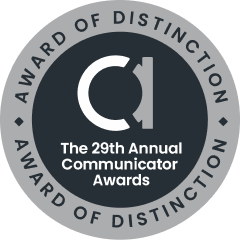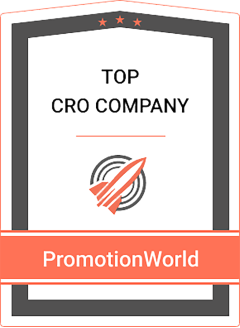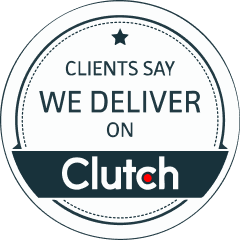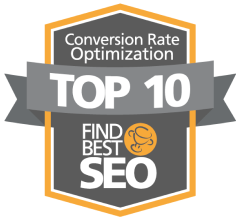Daniel Priestley | Co-Founder | ScoreApp & Dent Global
In this jam-packed episode, we are joined by Business Advisor of the Year and Entrepreneur of the Year Daniel Priestley to discuss a topic that is very relevant to all marketers – predicting future trends.
Transcripts
[Laura]:We have with us today, Danny Priestley. He’s an internationally recognized speaker, author, and entrepreneur. He’s written four bestselling books on entrepreneurship and co-founded Dent Global, one of the world’s top business accelerator programs, and ScoreApp, a technology platform for marketing. He’s named Business Advisor of the Year by Growing Business Awards and Entrepreneur of the Year by the Business Champion Awards. He’s here to talk with us today about a topic very relevant to us all, predicting future trends.
Welcome, Danny
[Daniel]: Thank you very much for having me on the show.
[Laura]: Yes, of course. Just to get started, when I first became acquainted with you, I really identified with so many of the ideas that you endorse. I’m a serial entrepreneur myself, so many of the ideas that you espouse really resonate with me. Maybe you can give the folks a little bit more about where you’ve come from and how you’ve arrived at this really amazing spot in your career.
[Daniel]: I’ve spent my whole life as an entrepreneur. I started my first company when I was 21 years old. I grew a global business. We’ve got offices in London, Sydney, and Toronto. We’ve got about three and a half thousand clients around the world. I’ve got a real passion for the times that we’re in. I think that we live through the most incredible times to be an entrepreneur and to grow an entrepreneurial business. There’s never been more money available. There’s never been better access to markets. It’s never been easier to find incredible, talented people who want to join teams. It’s a fascinating time to be around. A lot of the time we can lose track of that if we watch too much news, because it’s all pretty negative if you watch the news. Actually, I think it’s the most incredible time to be starting and growing a business.
[Laura]: Awesome. That’s such an optimistic outlook. It’s very refreshing. In talking a little bit about ScoreApp, for those who aren’t familiar, maybe you can describe scorecard marketing and what that is.
[Daniel]: People absolutely love to measure, optimize, and improve anything. If you take the scoreboard away from most sports, we would lose interest in that sport pretty quickly. We don’t really care whether someone can kick a ball around, we care whether they can score goals. We want to be able to measure if they’re improving and which team’s the best team. We could extrapolate that across every area of life. We want to be able to measure it, we want to be able to improve it. People are drawn towards online quizzes and questionnaires as a way of testing themselves to see if they’re on track with a goal. This is one of the things that we discovered in the mid 2010s.
We uploaded something called the influencer scorecard, or it was called the key person of influence scorecard. We just asked the question, how influential are you in your industry? Take these 40 questions and find out where you could improve as an influencer in your industry. 90,000 people took that scorecard. It was an incredible, eye opening experience. Just how many people want to measure stuff, how many people want to answer these questions and get personalized information and personalized recommendations back. We’ve set up hundreds of scorecards now. Things like, is your business cyber secure? Are you ready to run a marathon? Are you ready to lose weight and feel great? Are you ready to get fit over 40? Are you ready to be a great parent? There’s all of these kind of scorecards that people are engaging with.
Thousands and thousands of people a week just taking an online scorecard. What they do is they arrive at a landing page and the landing page asks them a question or kind of guides them towards an outcome that they want to achieve. And then it says, answer a series of questions and we’ll give you some feedback as to whether you’re on track to achieving that outcome. We call this scorecard marketing. It’s a new type of marketing and new approach that we’ve kind of systemized, and people love to engage with it. They love to answer all those questions. And then, when they get to the end they get a customized report that tells them how they’re doing and where they could improve. For them, they get immediate value. For the person who owns that scorecard or the business that owns that scorecard, they get incredible insights about that person. They get data. Straight away they know 40 or 50 things about that person. They can start to have a customized marketing response or a customized sales response to that person who filled in the scorecard.
[Laura]: Excellent. I completely agree. We all take quizzes all the time and it’s just growing. In fact, Buzzfeed has built an entire media mogul empire off of that very premise. Absolutely true.
[Daniel]: The one thing that we didn’t expect is that CEOs of companies fill these in and millionaire investors fill these in, grown-ups who want to do grown-up things. It’s not just which Disney princess are you or any of that. It’s actually… People really love taking scorecards from top to bottom.
[Laura]: That’s really interesting, you bring that up. How do you see this applying in a B2B setting?
[Daniel]: Most of the scorecards we have launched with clients are actually B2B scorecards. They are in a B2B setting. Here’s one of the things that we noticed. When we look at a lot of companies’ websites, the website tells us a lot about that company. I can have a look at a typical website… I was on one just last week, and this is a huge company, multi-billion dollar company, and they’ve got replays of workshops that you can watch. They’ve got hundreds of blogs that you can read. They’ve got pages about who they are. They’ve got pages about every single member of their team. You can just learn and learn and learn about that company. You could literally spend days on that website reading about the business. But then I asked them, tell me, how would I go about telling you, as a company, about me?
I want to be able to go to the website. What if I wanted to tell you about myself? And we looked and we said, there’s only really a contact us button. If you hit the contact us button, it asks the name, email address, and what my inquiry relates to. That’s it. As soon as we put a scorecard on the website, it says, take the scorecard, and then it says, let’s find out if you’re ready to pay less tax, let’s find out if you’re ready to improve your IT systems. You can kind of use that as a concept. Immediately, the questions might be, has it been more than three years since you’ve done a review? Have you done this? Have you done this? All of those qualifying questions that a salesperson might ask on meeting number one, they’re just in the scorecard.
Now, people then answer those. There’s some point systems behind the scenes that are giving people points. At the end it says you are 68% ready, and we think that if you made these choices you could be up above 80%. It actually gives a little customized recommendation report. One of the recommendations is almost always talk to a salesperson, talk to one of our members of the team. You can book right there and actually book an appointment to talk to someone straight away. In a B2B setting, it’s essentially, it’s prospecting on steroids. It’s 24 hours a day, seven days a week. It’s whenever the customer feels like interacting, they can interact. Whenever they want to tell you about themselves, they can answer the scorecard and give you that information. It’s really flipping things on its head. Rather than broadcasting to customers you’re asking and inviting customers to tell the business a little bit about them. Obviously, that’s hugely valuable to any B2B sales environment.
[Laura]: For sure. Let me ask you this. How do you find that the length of the scorecard questionnaire affects the drop-off rate? When we do typical online surveys, we find that people are very, very sensitive to the length of that questionnaire. If it’s three questions you get way more responses than if it’s like 15 questions. Do you find that same dynamic in the quizzes?
[Daniel]: The final way that our clients are using scorecards is with paying clients. Let’s imagine somebody signs up for a service. The first thing that they do is complete a detailed questionnaire about their business as a part of the onboarding as a client. People will answer 50-100 questions if that’s the situation because they know that answering those questions is the key to unlocking better service and unlocking more efficiency from the company that’s providing that service. They’ll happily answer as many as they’re told, provided they seem relevant, obviously. So there’s the cold, warm, and hot types of clients or cold, warm, and clients. The next thing you would say is just the types of questions. Yes or no questions are super-fast, especially if they relate to basic things people know off the top of their head. Open questions, where people have to type an answer, slow things right down. You want to be careful not to ask people to give you all those kinds of writing essay-type questions.
[Laura]: For sure. That makes sense. Let’s switch gears a little bit. I wanted to dive a little bit more into predicting future trends. Starting a little bit with content. In a marketing sense our world changes all the time. Things are always evolving. In creating content, do you have any tips or things that you would recommend for making things that are evergreen, things that you can post that are still relevant a year from now and two years from now as they were the day you wrote it?
[Daniel]: I’ll talk about two things. I’ll talk about how to create evergreen and also some of the bigger trends and predicting trends. The evergreen is about principles and philosophies that really underpin the business. Whenever you’re talking about the underlying methods and philosophies of that business, why you do what you do, that’s not going to change year on year. Provided you are constantly sharing with people the underlying philosophy of your business, the underlying insight, the big secrets that your business understands well that others are missing, that’s the stuff that people come to you for. They come to you for that year after year, decade on decade. That’s the best evergreen content. News hijacking is fabulous for a short-term burst, but you know what the news cycle is like. 24 hours later, people have completely forgotten.
Now, as far as predicting big trends, this one you might find interesting. And that is that the US presidential elections are really good for understanding marketing trends. Think about the US presidential election as the most fiercely competitive marketing competition in the world. If it was a sport it would be the Formula 1. It would be the grand final of sports, is the US presidential election. It’s big-budget, it’s winner take all. It’s a very fiercely contested thing. Here’s what’s interesting. Historically, US presidential elections have given us marketing trends. Franklin Roosevelt, he did the fireside chat and he moved the conversation from print newspaper onto national radio. Essentially his national radio conversations really predicted this huge shift where people went from reading newspapers to listening to the radio. And then, the JFK-Nixon debate was a live-televised debate, and that moved things from the radio to television.
It actually spelled out a huge shift towards that media and that type of media and the types of brands that would do well on that media. If we fast forward to Barack Obama in 2008, he was the first president to do big social media campaigns. Up until 2008, social media was considered something teenagers did, it was not taken seriously by big brands. There was no conversation in any boardroom that said, we should be on Twitter, we should be on Facebook, we should have a YouTube channel. None of that was in serious marketing conversation. And then, Obama wins that election and people start going, “Oh, wait, this is no toy. This is something we need to figure out how to use.” Now, in 2008, people were saying you must become a media business. You’ve got to become a content business. You’ve got to pump content out constantly. That was true in 2008, 2009, because there was this huge woosh as people moved their attention from television into social media.
But then, in 2016, something happened again. Now, there’s a bit of controversy about this, and it’s called Cambridge Analytica. Cambridge Analytica was a data analytics company. They took data from Facebook and they created hyper-personalized marketing. They created campaigns for one person at a time. They had a way of algorithmically moving the right ad into the right person’s sphere of consciousness. Actually, they would come up with hundreds of different versions of ads and they’d place those in front of people based upon the issues that they knew those people cared about. This was hyper-targeted marketing, hyper-personalized marketing. Essentially, this sparked a new trend. The new trend is data analytics. Data analytics is essentially collecting data about people and then delivering hyper-personalized results to them so that they’re having an experience that’s very unique to them.
If we look at the big trends that’s running at the moment, it’s all about personalization. It’s not about broadcasting generic content to people anymore. It’s not about just pumping out information into the… trying to fill up the internet with more content. It’s about collecting data and then giving people a personalized experience. Now, very small number of companies and brands are actually able to deliver on this and do this. We’ve all experienced it. Every time you’re on YouTube you’re getting personalization. Every time you’re on Amazon you’re getting personalization. They collect your data and your habits. They give you back more of what they think you want. That’s a personalized experience. What’s going to happen next is a big swing towards personalization from all sizes of businesses.
[Laura]: Interesting. What can we take away from, sort of, the most recent developments? There’s been a giant social media uproar between… You have the social media leads going in front of Congress, and then you have Elon Musk and his pitch to buy out Twitter. What do you think that will bring for us?
[Daniel]: It really spells a movement in the social media landscape where things are kind of… That market is consolidating and it’s changing the dynamic. It’s professionalizing. What’s happening at the moment is it’s gone from something that’s at the edges where lawmakers are just happy to let it, let’s see what happens, and it’s not hugely regulated. To now, it’s like center of the agenda and it’s like a major focus. This is pretty much what happens with all new technologies. At the beginning, there’s very little regulation and there’s like 10-year period where it’s the wild, wild west and anything can happen. And then, there comes a time where it gets regulated and it gets consolidated. We’re going through that particular phase.
Now, here’s what’s really happening from a marketing point of view. What’s happening is, as marketers, we’ve got to shift to the next thing because content is so, it’s such a noisy landscape now. There’s so much noise there. You only have to broadcast the wrong thing into people’s sphere, into people’s bubbles, into their little information bubble, if it’s the wrong thing, they get very upset about it. This is part of this expectation around personalization. The next thing is definitely… If I was talking to a business in 2008, 2009, I’d say think like a media company. No matter what it is that you do, think like a media company. If I was talking to a business today, I’m saying, think like a data analytics business, you’ve got to become more data driven in order to deliver that personalized experience for each person. The ultimate goal is that every individual you’re talking to has a personalized experience that feels unique to them.
[Laura]: Interesting. What do you think all of that says? And perhaps, drawing from other trends outside of social media, how do you think people might be changing the way they prefer to be communicated with in terms of the channels and how we outreach them?
[Daniel]: The big trend is that consumers of all ages, but especially young consumers, consumers are very happy to share information about themselves. Based on their behavior, they will share information about themselves in exchange for a personalized experience. Sometimes there is a belief that people don’t want to share information about themselves, but when you look at behavior people absolutely want to. They expect that if they share something about themselves then the business then uses that to give them a personalized experience. That’s a key shift in consumer behavior.
[Laura]: Interesting. In B2B marketing, most of our audiences is engaged in account-based marketing where the audience size is fairly finite. It’s not this broad at-scale data. When you’re thinking about data analytics for a very finite market where you’re building relationships with every target account you have, do you have any tips for creating those relationships using data analytics?
[Daniel]: Here’s the funny thing. A relationship is actually just a lot of data. Why is your best friend your best friend? Because you’ve got the data on them. You know all sorts of information about them. If I was to say, tell me about your best friend. You’d say, what do you want to know? I can tell you all sorts of stuff about my best friend. I can tell you their favorite foods and restaurants. I can tell you their favorite movies. I can tell you sort of the highs and lows that they’ve had. All of that’s data. That’s proper information. That’s proper data. Now, what’s funny is you might not be able to tell me their email address and phone number off the top of your head, but that’s not really that important. You can look that information up.
Now, what most people are doing with data analytics is they’re overemphasizing collecting name, email, and phone number, which is great, but that’s not data. Data is what does this person love? What does this person hate? What is this person proud of? What is this person trying to avoid? What frustrates them, what annoys them. It’s about understanding that full picture. Now, human beings, we are great at collecting data about people and we store that in our little database called our head. We have our top clients called our best friends. When we start to realize that friendship and love and connection is all actually very intertwined with data and the way we understand people and the way we gather data about people, then we really start to figure out how to use data effectively.
What I’m saying is if you’ve got a finite number of clients, customers, to use an analogy, if I was to ask you, can you think of a product or a service that your best friend would really enjoy? You probably could come up with an answer. If I said to you, can you think about your best friend and what’s something that frustrates them regularly? You could probably come up with an answer. When it comes to that in a business context, it’s that level of understanding and data on every single client that leads to your next product innovation, your next sale, the next thoughtful recommendation. You can’t really make a thoughtful recommendation about something if you don’t have the data. It used to be that we hired super friendly people in relationship management roles and they just went out and were friendly and because they’re natural data gatherers. Actually, what we need to do is say let’s give them superpowers by having systems in place that gather all of that information in one place and make it very easy to make a thoughtful recommendation at scale.
[Laura]: That’s incredibly important. I love all of those points. There’s so much for us to unpack and take away there. We are running a little bit toward the end of our time. I am a voracious reader… To sort of change gears just a little bit before we’re done. I’m a voracious reader. I ask all of my guests what their favorite books are, but I’m going to ask you a slightly different question. As one of your quotes on your Forbes profile, you say, “The book that really changes your life isn’t the one you read it’s the one you write.” I love that. What makes you say that? Why do you think that is?
[Daniel]: I was reading a lot of books and enjoying a lot of books, but I found that I would read a book and move on, and read a book and move on, and read a book and move on. I actually, I became friends with someone who was reviewing a lot of books and she was reviewing like 150 books a year. Her life wasn’t massively changing as a result. She was literally reading and reviewing these business books, but her business was pretty flat. I kind of became a bit cynical about whether that was whether the books were as powerful as we thought. I noticed that my mentors had all written books and I went through the process myself of writing some books. I realized that that process is incredible. When you write it makes you, it forces you to take all that knowledge and experience that you’ve got over the years and to put it into one place, to dust it off, to polish it, to formalize it.
It creates a scalable format for going out and meeting people. It creates a way of building relationships with people anywhere in the world. It creates something that totally goes out there, transcending time, space, and decay. It allows you to just kind of reach out there. It’s a credibility builder. It’s an authority builder. When I wrote my first book, my life genuinely changed. As an author I suddenly got invited to be speaking on stages, and I suddenly didn’t pay to go to conferences I got paid to go to conferences. Suddenly people would contact me completely unannounced, out of the blue, and say, “I’ve read the book and I want to work with you.”
I realized that the book that changes your life is not one you read it’s one that you write. I encourage everyone to go and write. Whether it’s writing articles, but have a goal to write a book. I really genuinely believe everyone’s got a completely unique background and a set of experiences and there’s valuable insights that you’ve learned. Maybe a million people won’t read the book, maybe 100,000 people won’t read the book. Maybe a few dozen people read the book and it really speaks to them. It’s a really valuable activity that I recommend.
[Laura]: That’s phenomenal. Absolutely phenomenal. One of my favorite quotes is, “If you be remembered when you were gone, either write something worth reading, or do something worth writing about.”
[Daniel]: I love that.
[Laura]: That’s exactly it. It’s exactly it. One other question on that, how much time, when you sat down to write your books and consider what you were going to write about, how much weight, rather than time, how much weight did you give, this is what I have to say, this is the culmination of my experience versus what do people need. As a marketer, I’m so in my head about what does the market need? What do they not know that I do? What’s special about me. How much time did you devote to sort of the gaps that exist versus your body of knowledge?
[Daniel]: I had been doing a lot of sales. The beautiful thing about sales is it’s really where those two questions meet. The salesperson is the person who’s got all of the products and services and solutions. They’re out there talking to people trying to find the meeting point. They’re using stories, analogies, research to get people to connect the dots between their problems with the thing that they’re trying to sell. What I discovered is that the best marketing copy on the best book chapters that I wrote were all really common stories I was talking about when I was selling. It was my best sales material. It was my best sales scripts that were going in there. Essentially, when I’m trying to sell an idea or a concept or a philosophy first and then the solution, that makes good book content.
Unashamedly, I was writing books that were trying to sell ideas. I was not writing textbooks. Remember, all of my books are not textbooks. None of them are academic. They’re kind of thought leadership books or ideas books. I’m trying to sell that idea. I want the reader to kind of take on an idea and go, I never thought about it that way. I’m going to do things differently as a result. The funny thing is, I really think anyone who’s got a sales background probably is a good writer as well. If you just record some of the stuff that you talk about with your clients that’s a good starting point for chapters.
[Laura]: Good salespeople are good storytellers, right?
[Daniel]: Exactly. Right. It’s just a different format. It’s just a different way of getting that across.
[Laura]: Exactly. Exactly. Danny, thank you so much for your time today. This has been wonderful talking to you. So much great stuff in here, and hopefully we’ll get to talk to you again soon.
[Daniel]: Likewise. Thanks for having me on the show.
[Laura]: Thanks for joining us today. Don’t forget to subscribe, rate, and drop us a review on iTunes. If you enjoyed this episode, I would love to hear from you. Tag me on Twitter at CMOGTE podcast, and let me know what you think about the show and if there’s any topic you’d like to hear about in the future. Until next time, this is Laura Cuttill, your host from the CMOs Guide to Everything.








